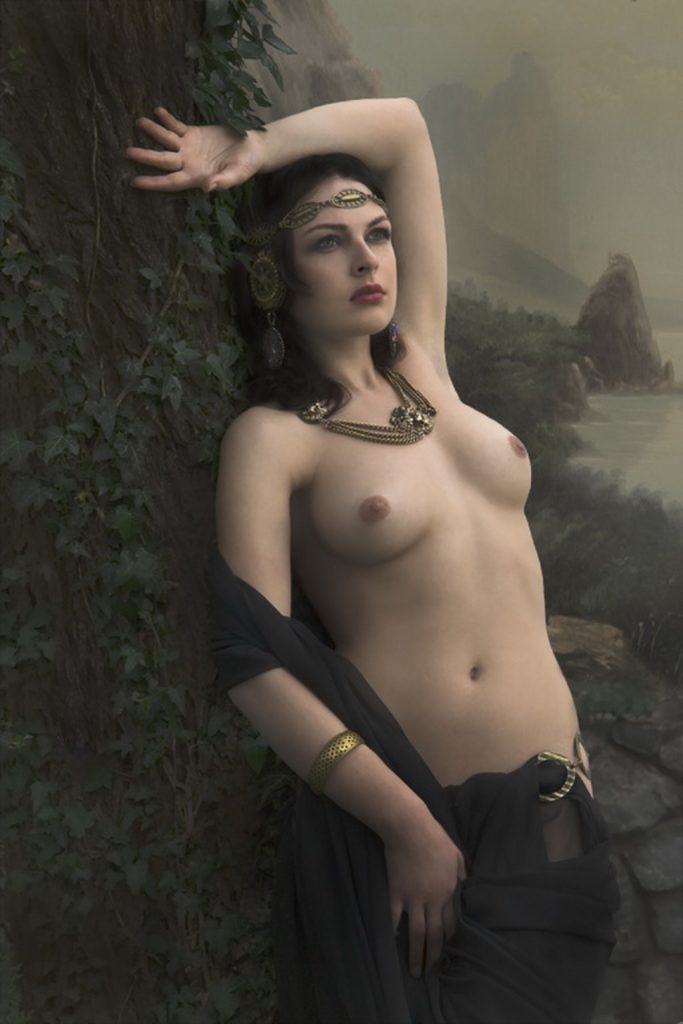Kalliopé is the eldest of the Moúsai (Muses), the nine daughters of Zeus and the Titaness Mnemosyne, whose name means ‘memory.’ Born in Pieria, at the foot of Mount Olympus, she and her sisters are goddesses of music, song, and dance.
She is the patroness of epic poetry and the goddess of eloquence, typically bestowing the latter gift on rulers.
The wisest, as well as the most assertive of the Moúsai; more stories are told of Kalliopé than of all her sisters.
⁂
Kalliopé had two famous sons, Orpheus and Linus, by King Oeagrus of Thrace, whom she married close to Pimpleia, Olympus. To Orpheus she taught music, poetry, and skill of prophecy.
She was also, for a time, the lover of the war-god Ares, and bore him several sons: Mygdon, Edonus, Biston, and Odomantus, respectively the founders of Thracian tribes known as the Mygdones, Edones, Bistones, and Odomantes.
Kalliopé was appointed by her father, Zeus, as the arbiter of the dispute between Aphrodite and Persephone over possession of Adonis. The wise Moúsa decided that that beautiful youth should spend half of the year with Aphrodite, his foster mother, and the other half with Persephone, his nurse. But the goddess of love was not satisfied with this verdict, which she felt robbed her of her rights, so she stirred the drunken, mad Thracian women who followed Dionysus, Maenads (lit. “Raving Ones”), against Kalliopé’s son Orpheus. The women tore him limb from limb. The grieving mother later recovered her son’s head and enshrined it on the island of Lesbos.
Kalliopé was Homer’s Moúsa, inspiring both the Iliad and the Odyssey. She is rumoured to be his real mother. She inspired Achilles to write bawdy drinking songs (for some reason).
She bore two children to Apollo, the god who taught her son, Orpheus, the lyre: Hymen, the god of marriage, and Ialemus, the god of sad songs. After taking her father Zeus as a lover, Kalliopé bore him the Korybantes, seven demigods who preside over the Dance of the Mysteries of Samothrace. As a result of a liaison with the Titan Sea God Phorcys, she became the mother of that race of deadly mermaids known as the Sirens.
⁂
At the base of Mount Helicon in Greece are two springs sacred to the Moúsai: the Aganippe and the Hippocrene, both created by the hooves of Pegasus. They have been a place of pilgrimage for those seeking inspiration since ancient times.
It is said that in the music of those fountains one can hear Kalliopé singing.
⁂
It is Kalliopé who inspires my work, so blame her.
— GTJ


